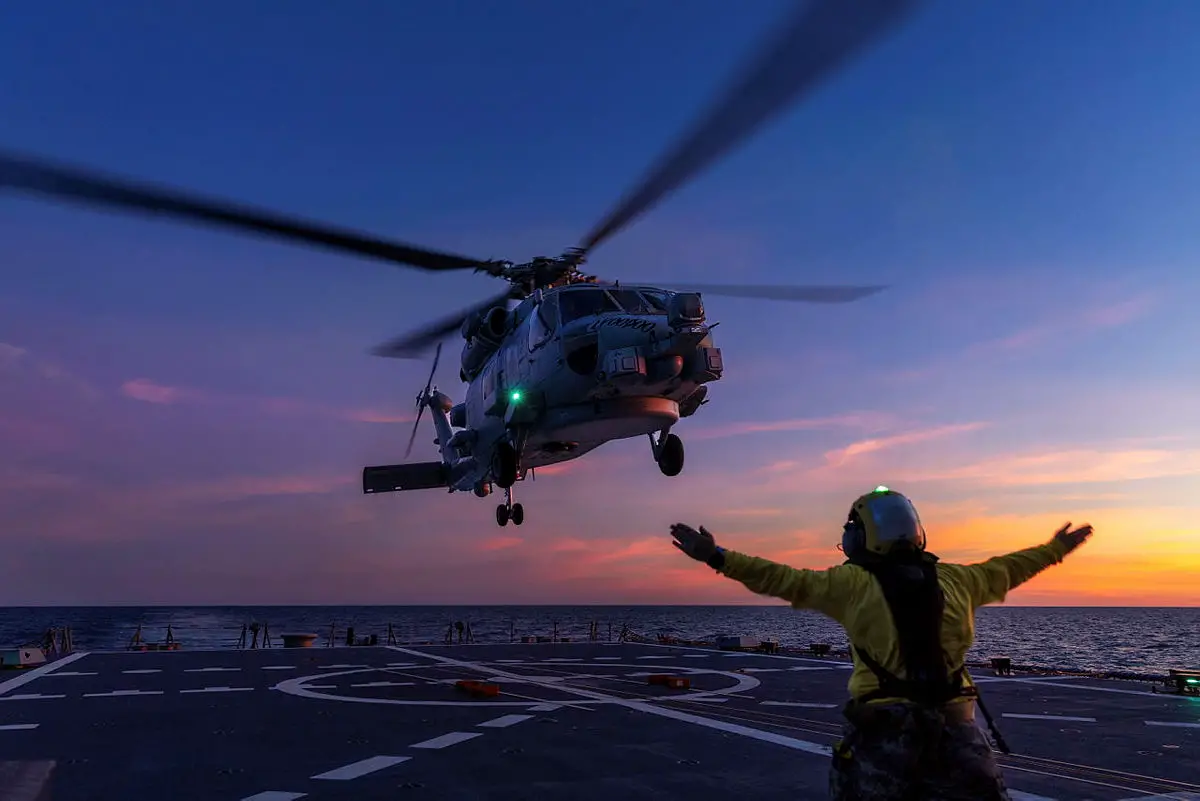The Australian Government has expressed its concerns to the Chinese Government following an unsafe and unprofessional interaction with a People’s Liberation Army – Air Force (PLA-AF) fighter aircraft. On 4 May 2024, HMAS Hobart was in international waters in the Yellow Sea undertaking routine activities as part of Operation Argos, Australia’s contribution to the international effort to enforce United Nations Security Council sanctions against North Korea. During these activities, a Royal Australian Navy MH-60R helicopter launched from HMAS Hobart was intercepted by a PLA-AF fighter aircraft.
The People’s Liberation Army – Air Force aircraft released flares across the flight path of the Royal Australian Navy helicopter. This was an unsafe manoeuvre which posed a risk to the aircraft and personnel. While there were no injuries sustained by ADF personnel or damage caused to the MH-60R helicopter, the safety and wellbeing of ADF personnel continues to be utmost priority. the Australian Defence Force expects all countries, including China, to operate their militaries in a professional and safe manner. Defence has undertaken maritime surveillance activities in the region and does so in accordance with international law, exercising the right to freedom of navigation and overflight in international waters and airspace.
The Pentagon last year released data on unsafe intercepts by the Chinese military in the western Pacific. The Defense Department published accounts, including photos and video, of 15 separate incidents in the air between January 2022 and September 2023. Since 2018, a number of countries have had ships and aircraft conducting patrols, monitoring and carrying out surveillance of North Korea violations of UN sanctions via ship to ship transfer of goods. In recent years, Canadian aircraft and Australian warships have faced harassment by the Chinese military, who claim that such missions are covers for reconnaissance and monitoring missions on China. In October 2023, a Chinese fighter jet dropped flares in front of a Royal Canadian Navy helicopter.
The MH-60R-Seahawk, operational with the USN since 2006, was designed to replace 2 helicopters – the SH-60B and SH-60F. This allowed a single helicopter to perform the full spectrum of maritime helicopter roles. The helicopter was jointly built by Sikorsky Aircraft Corporation and Lockheed Martin, responsible for its airframe and its complex avionics and mission systems technologies respectively. One of the MH-60R’s features is its networked mission systems and digital cockpit. It equips Navy aircrew with unparalleled situational awareness. The MH-60R fuses information from its advanced RADAR, SONAR, Electro-Optical and Electronic Support systems before sharing mission critical information via its high speed datalinks.











